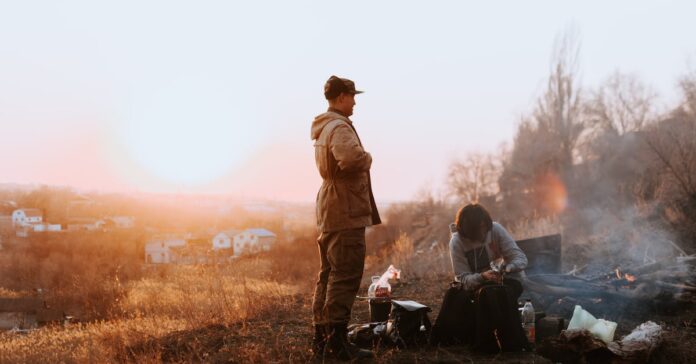Camping is a great activity, but there are some risks associated with it. There are many natural hazards in the wild that can be dangerous and even deadly to campers if they encounter them. The following article will keep you safe by showing you what hazards to look out for while camping.
Water is critical for your survival when hiking in the backcountry. Carry water purification tablets with you or some sort of water filter that is capable of filtering out bacteria. There are many different kinds available at your local sporting goods store. Whenever you are looking for a water source, make sure the water is flowing; stagnant water can kill you if not treated properly.
Before you start out on that relaxing camping trip, it is essential for your safety to make sure to let someone know you are going. Give a friend or neighbor the name of the campsite if you are using one. If you are headed out on a less structured trip, give your contact a general idea of where you are headed and a timeline for your return. If something goes wrong, there will be someone to know where to look for you.
When you go camping, be sure to wear closed-toe shoes. Walking in wooded areas, you can come across almost anything; not to mention things can fall on your feet. You may also want to take a hike. So the next time you go out camping, make sure to wear shoes that can go everywhere you want to go.
When it is time for you to go to sleep, it is a good idea to put the coolers that you brought along into your vehicle. Bears have become quite savvy these days and have figured out that these coolers usually carry food items and this will attract them to your campsite.
When you go camping, be sure to have a few activities in mind other than just… “camping”. The camping experience is enriched by hiking, swimming, exploring and things like that. Be sure to engage in some of these other activities so that you have the fullest camping experience you’ve ever had.
Consider purchasing inexpensive walkie-talkies to take with you on your next camping trip to provide a way to keep in touch with everyone in your party in areas where cell phone reception may not be available. This can be especially important if you are camping with children and need to keep track of their whereabouts.
When camping, periodically do a tick check. Look for any brown or black spots that have just appeared on your skin. Ticks attach themselves to the skin without causing too much of a disturbance, so be sure to check yourself and your companions for ticks after spending time camping outdoors.
Unless you are a wildlife expert, you should never drink water that you haven’t brought to the campsite with you. Water may look crystal clear but actually be home to a host of diseases or bacteria. If you are in an emergency, always choose running water over stagnant water.
Make sure to bring several flashlights or lanterns and extra batteries on your camping trip. There are times when it is important to be able to see clearly in the dark. After all, you don’t want to stumble in the dark, or accidentally step on a wild critter. When camping with children, give each child a flashlight.
Never park your vehicle under a single tree when you are at a campsite. If there is a storm, it will attract lightning. This also means that you should avoid sleeping under any trees that are in a particular area by themselves. Try to be in an area that is free of trees or one that has many.
Trail mix is a classic snack and for a good reason. Throw a little beef jerky, a few fruits, and you’ve got yourself a full camper’s meal. When the sun sets and you get too exhausted to cook that night’s meal, you can cheat once or twice and eat some of those tasty, filling snacks you’ve now decided to pack. These items can be stored for quite a while, which means you don’t have to worry about the expiration date.
Watch out for irritants like poison ivy. It usually has recognizable triple-leaf clusters. However, poison sumac and poison oak tend to have more leaves and also need to be avoided. Keeping your skin completely covered when near these irritants can help prevent rashes. You should also carry some calamine lotion and allergy medication or antihistamines as a precaution.
Although there are hazards associated with camping, don’t let them deter you from venturing into the wild. Being aware of the dangers of camping is the first step towards avoiding them. If you avoid these dangers, then you can create an enjoyable camping experience that will be remembered for years.


